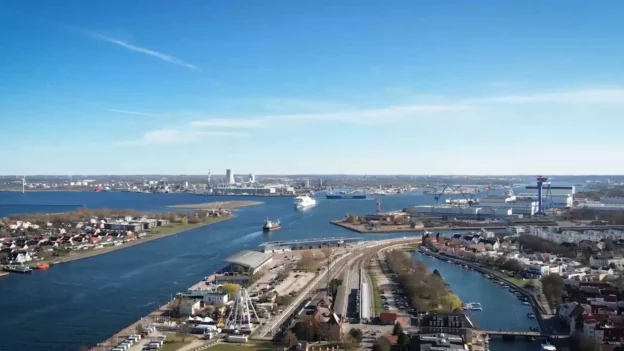The Port of Rostock and the Pecém port complex have established a roadmap for an energy corridor between Brazil and Germany with a projection towards Eastern Europe. This agreement frames cooperation in renewable hydrogen, port logistics and capital attraction. The initial term was established for two years with goals of technical exchange and investment support.
The green hydrogen corridor and supply chain
The memorandum of understanding opens up joint work in route planning, maritime services and storage for importing green hydrogen and ammonia. It also integrates exchange of best practices in terminals, safety of operations and quality standards. The intention is to ensure stable supply and competitive costs for the European industry.
The Peecém Complex is consolidating its position as a H2 hub in Ceará with projects for NH3 and clean energy. In addition, its location favors a direct Atlantic route. Rostock is emerging as a German port for green energy. green energy with capacity for reception, conversion and distribution to the north and east of the continent. Together they align supply and demand under decarbonization.
This development envisages greater efficiency in turnaround times and cargo handling, agreements with shipping lines and expansion of infrastructure for hydrogen carriers. The framework seeks to mobilize financing for associated plants and expand value-added services at both ports.
The visit of authorities and executives led to this agreement that prioritizes clean energy and business cooperation. This agreement acts as a bridge between regional governments and private operators to accelerate H2 and ammonia supply chain projects.
Source and photo: Rostock Port

